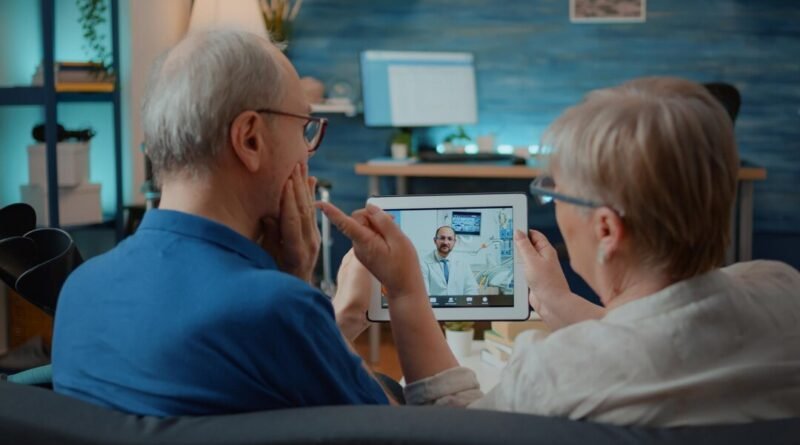The Perks of Integrating Digital Health Tools in Elder Care
As our elderly population continues to grow, caregivers are looking for ways to enhance the quality of care provided in assisted living environments.
One of the most effective ways to improve care is by integrating digital health tools. These tools can not only make the daily tasks of caregivers easier but also help improve the health and safety of elderly individuals.
This article explores the key benefits of using digital health tools in elder care, and how they can positively impact both caregivers and residents.
Enhancing Monitoring and Health Tracking
Digital health tools make it easier to monitor an elderly person’s health in real time. Devices such as smartwatches, blood pressure monitors, and heart rate trackers help track vital signs. This allows caregivers to spot changes early.
For example, a sudden rise in blood pressure or an abnormal heart rate can be quickly flagged, allowing for timely intervention. This can help manage chronic conditions better. It reduces the need for emergency visits and hospital stays.
Improving Medication Management
One of the most challenging aspects of elder care is ensuring that medications are taken as prescribed. Digital health tools, like medication reminder apps and pill dispensers, help people not miss their doses. They also clear up confusion about medications.
These tools send reminders to the elderly person or their caregiver when it’s time for a dose. This helps them follow their prescribed treatments better and lowers the risk of complications.
Enhancing Communication Between Caregivers and Families
Digital tools can also help facilitate communication between caregivers and families. Video calls, messaging apps, and health monitoring platforms help families stay close, even when apart.
This helps families feel at ease. They can keep an eye on their loved ones and connect with caregivers when necessary. It also allows families to be more involved in decision-making regarding the care of their loved ones.
Promoting Independence and Quality of Life
Elderly individuals often want to maintain their independence for as long as possible. Digital health tools can help them do so. Devices like fall detection sensors, voice-activated assistants, and health-tracking apps support older adults in looking after their health and well-being.
A voice-activated assistant can help an elderly person with tasks. They can make phone calls, set reminders, or adjust the thermostat. This way, they can do these things without needing help. These tools can enhance their quality of life and reduce the need for constant supervision.
Supporting Key Caregiver Skills in Assisted Living
For caregivers, digital health tools can be an invaluable resource. They can assist in developing key caregiver skills in assisted living environments, such as:
- monitoring health
- providing timely interventions
- managing daily tasks more efficiently
These tools give caregivers data-driven insights. This helps them make smart choices about a resident’s care. Digital tools help caregivers by streamlining daily tasks and automating some activities. This lets them focus more on giving personalized and compassionate care.
A Step Towards Better Elder Care
Integrating digital health tools in elder care has the potential to transform the way caregivers provide care. These tools can boost health monitoring and promote independence. They help both elderly individuals and caregivers feel better.
If you’re a caregiver or family member wanting to improve care for your loved one, look into the benefits of digital health tools. With the right tools, you can ensure a healthier, safer, and more fulfilling life for your loved one.
If you’re looking for even more awesome content, then the Articles section of this site is the place to be.

